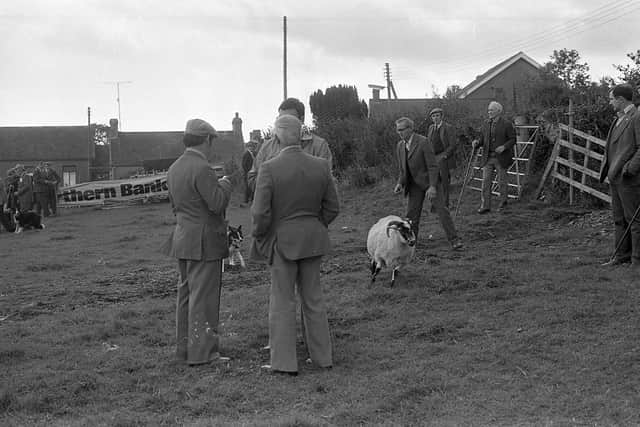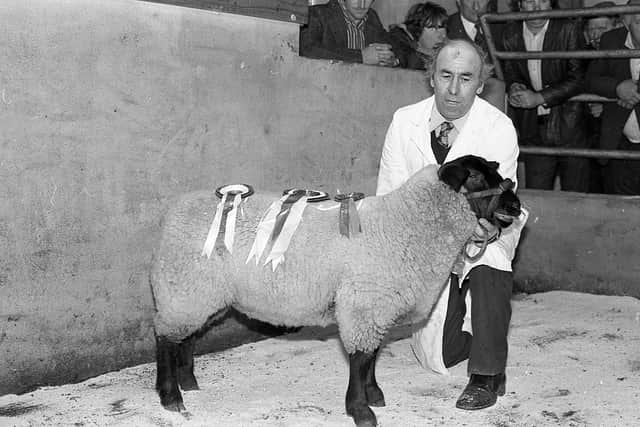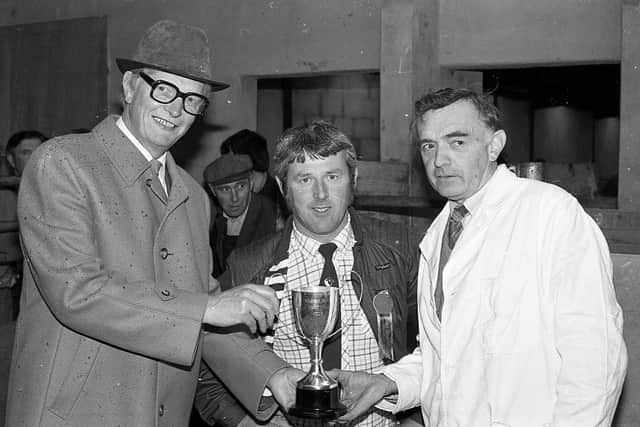Bygone Days: Farm minister replies to criticism nationalist of Ulster creameries (1947)
and live on Freeview channel 276
The Nationalist motion expressed the opinion that greater care should be exercised by creameries m the handling, weighing and grading of milk, and that the farming community should be afforded more effective machinery for appeals against decisions of creamery authorities on questions of weight and grade.
The minister replying, said that if the facts or supposed facts of alleged racketeering were brought to his notice, he would have them thoroughly. One fact stood out, he said, and that was that supply of milk had gone up steadily.
Advertisement
Advertisement
He said that all sorts of allegations had been made that farmers were “being cribbed, cabined and confined” by a multiplicity of forms, and unreasonable documents as to the conditions of their byres, but year after year, since the scheme had come into operation, the supply of milk had increased, and in 1948 it had reached a record figure for off-the-farm sales.


The province, he said, could export a very much larger surplus of milk “if the transport were available”.
If there was all that dissatisfaction and interference, he could not see a process of that kind continuing – and they had not yet reached the peak.
The minister continued that there were 27,000 producers milk suppliers in the province. He said it has been pointed out that times of collection had not always been what they should, but the arrangements had been changed until he was satisfied that they could not be improved upon.
Advertisement
Advertisement
In striking contrast with the position in Great Britain, where the small producer was frowned on, the small producer in Northern Ireland received the same treatment as the man with 22 cows, he remarked.


He remarked: “Grading of milk was done by an official of the ministry and the weighing and recording were supervised by an official of the ministry.
“In order that the standard would be uniform in all creameries senior officials periodically supervised the work.”
Addressing the allegation that the producer was being deprived of five pounds weight in his returns, Mr Moore asked: “What good would that be to the ministry. It brings no profit to any man in the ministry, and I will be no party to that kind of behaviour.”
Advertisement
Advertisement
Mr Moore pointed out that there were three grades milk - liquid, manufactured and salvage.


He said: “Over 98 per cent, of all the milk handled the depots in 1946-47 had been graded and paid for as liquid milk - the highest grade.”
“I am satisfied,” he added, “that the scheme in general has been a Godsend to the agricultural community and is being fairly and scrupulously administered on the whole.”
Mr Conlon (Nationalist, South Armagh), moving the motion, complained that when the creamery authorities rejected milk, the farmers had no right of appeal. The minister, he thought, “should arrange for representation of the farmers on the grading boards and give them a right of appeal”. He added: “Many farmers felt that there are too many petty rules and inspectors.”
Advertisement
Advertisement
Mr Healy (Nationalist, South Fermanagh), seconding the motion, said that at some creameries, “all suppliers, no matter how scrupulous they are, have had their milk ‘docked' at some time in the month”.


He added: “It would seem as it the creameries wanted complaints so that they could reduce the price of milk for a certain number of days, so as to meet their overheads.”
Ulster growers not satisfied flax prices
A large meeting held this week in 1947 representatives of all the flax-growing areas in Northern Ireland was held at the Ulster Farmers’ Union headquarters, Donegall Square East, Belfast.
The meeting was resided over by Major P Terris.
The following resolution was passed unanimously: “This meeting, representing the flax-growers in Northern Ireland, expresses complete dissatisfaction with the prices announced by the Board of Trade for 1948, which are not only below the economic level at which flax can be produced in existing circumstances, but embody no proviso that they would be Increased in the event of any increase in wages or scutching charges, and, further, we are absolutely dissatisfied with the present grading system.”